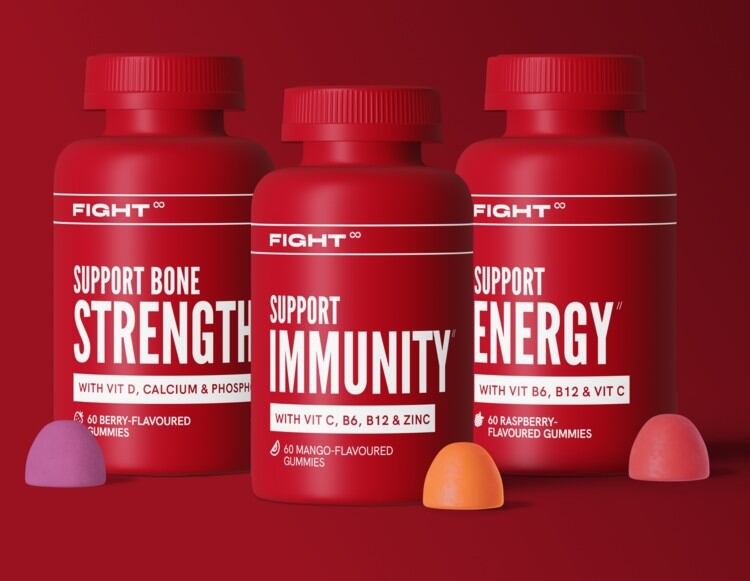ConfectioneryNews: How has CBD in the confectionery market grown and why?
Holly Finnegan: The CBD market is one of the fastest growing wellbeing product categories within the UK, expected to be worth £1bn by 2025. The rapid growth of this market has stemmed, in part, from the change to novel food status of CBD in 2017, bringing opportunities to many food and beverage categories as CBD became authorised for use as an ingredient.
Consumers have been keen to try CBD products as a result of promising clinical research into treatment of disease as well as its possible health benefits. The confectionery market is one of the fastest growing sectors for CBD, reflected in the proliferation of products such as CBD gummies, chocolate and baked goods on the market. These products attract consumers because the look and taste better than a CBD oil or supplement.
Holly Finnegan

With a background in nutrition and food technology, plus a Masters in food consumer marketing, Finnegan specialises in provided regulatory advice on novel foods, supplements and botanical ingredients at Ashbury.
CN: What type of business is fuelling the growth in CBD products?
HF: In the main, the growth of the market has been fuelled by online start-up enterprises who have been quick to launch products, whilst bigger companies appear to have taken a step back to wait for regulatory challenges to become clearer. However, due to novel food application requirements (which are extremely costly), it is thought that many of the smaller enterprises will suffer due to the financial strain and lack of regulatory expertise to complete such applications. Thus eventually, there could be a shift in the market leaders from smaller enterprises to larger companies with greater resources and expertise.
CN: What are the concerns about CBD as an ingredient?
HF: The main concerns about CBD as an ingredient relate to food safety and public health, mainly due to the presence of THC (the psychoactive substance present within CBD) but also due to the possibility of food fraud and therefore the presence of alternative ingredients which may be detrimental to health. In 2019, the Centre for Medicinal Cannabis conducted a test on CBD oils, which revealed one high street pharmacy product contained no cannabinoids at all, whilst 11 products tested contained less than 50% of the stated CBD content. There have also been multiple cases of products containing illegal levels of THC and some extreme cases of products containing the highly addictive, synthetic form of Cannabis, known as ‘Spice’. More recently, The Food Safety Authority of Ireland (FSAI) found that 37% of products tested (sample size= 38) had levels of THC which, if consumed at maximum stated dosage, could significantly exceed the daily safe intake limit set by EFSA. Moreover, 41% of products tested contained CBD levels which differed by more than 50% compared to the declared level.
There are also concerns around the marketing of CBD products, particularly those which claim health benefits which cannot be legally substantiated by any authorised health claims. This puts products at risk of being deemed medicinal and also risks misleading consumers into believing such products will treat diseases and/or have health benefits. In reality, the results of promising research cannot be extrapolated to the benefits of consuming confectionary CBD products.
CN: There is a complicated regulatory landscape surrounding the CBD industry – why is this and have there been any recent updates to legislation?
HF: In Jan 2019 the European Food Safety Authority (EFSA) re-classified CBD as a novel food, meaning that the use of CBD is unauthorised unless manufacturers can provide enough evidence to prove the not-novel status and safety of CBD as an ingredient, via novel food applications. Within the UK, the Food Standards Agency (FSA) announced that businesses need to submit a fully validated novel food application by 31 March 2021. After this date, only products for which the FSA has a valid application will be allowed to remain on the market.
Additionally, regulatory complications within the industry have spanned to the risk of non-synthetic CBD being classified as a narcotic drug and subject to the UN Single Convention on Narcotic Drugs 1961 (synthetic CBD is not considered as a narcotic as it is not extracted from Cannabis). Earlier this year, the EC announced a pause on the review of non-synthetic CBD novel food applications until a decision was made on the narcotic status of such substances. There have been differing views and levels of enforcement across member states. Within the UK, the FSA’s view is that in line with national government policy, CBD extracts themselves are not considered narcotics (although THC is). Whereas, in France, it is a different story as the directors of ‘Kanavape’ (producers of CBD electronic cigarettes) were convicted on the grounds that the CBD oil contained in the cigarettes’ cartridges was extracted from the whole hemp plant, including the leaves and flowers whilst French legislation restricts the cultivation, importation, exportation and industrial and commercial use of hemp solely to its fibre and seeds. However, just last month, the European Court of Justice (CJEU) ruled that CBD is not a narcotic drug and that EU member states may not prohibit the marketing of CBD lawfully supplied in other member states unless a real risk to public health has been demonstrated.
The ruling is seen as a crucial step towards legal certainty and harmonisation of regulations within Europe and settles the never-ending debate on whether CBD should be considered a narcotic drug, re-opening the doors for novel food applications. However, it is important to consider that the court did not assess the composition of the product and positioned its ruling that the extract did not contain THC, whereas all sources of CBD technically have an unavoidable level of THC.
Within the UK, businesses may continue to sell pre-existing CBD products before 31 March 2021, provided that the products are safe, labelled correctly and free from THC, or other substances which fall under drugs legislation.
In the main, the growth of the market has been fuelled by online start-up enterprises who have been quick to launch products, whilst bigger companies appear to have taken a step back to wait for regulatory challenges to become clearer
CN: Is the impact of Brexit muddying the waters?
HF: From next month, 1 Jan 2021, the UK will become a third country and therefore the free movement of goods will no longer apply. Additionally, the outcome of any CBD novel food applications submitted to EFSA will not be applicable to products on the UK market. Businesses wishing to sell CBD products on the UK market must separately submit novel food applications to the FSA for approval. There are some concerns over how efficient this new process will be.
The cost of CBD for British producers is also likely to be an issue post Brexit. It is illegal to grow and harvest hemp for its CBD content within the UK and the plants which are cultivated may only be used for their fibre and seeds. Thus, British companies are required to purchase hemp and finished CBD extracts from Europe. The uncertainty of any trade agreements may impact negatively on the cost of such imports, ultimately reducing margins.
CN: What alternatives are there to CBD which may be less restrictive from a regulatory point of view?
Hemp extract is an exciting ingredient as an alternative to CBD, which although itself comes with certain regulatory restrictions, EFSA have deemed certain parts of hemp as not novel (only seeds, seed oil, hemp seed flour and defatted hemp seed) and so these parts are considered as authorised food ingredients (with certain restrictions on THC).
- For more information on the topics raised in this article checkout www.ashbury.global.




